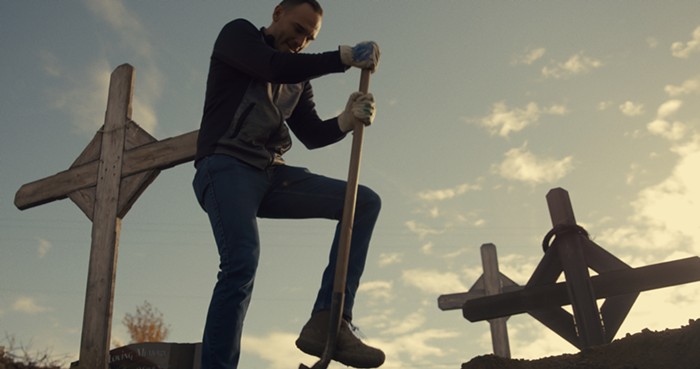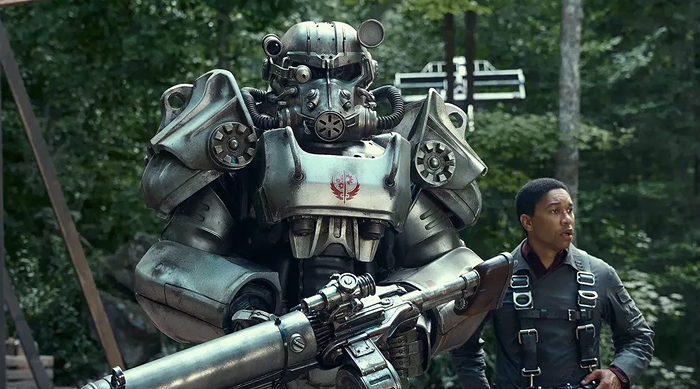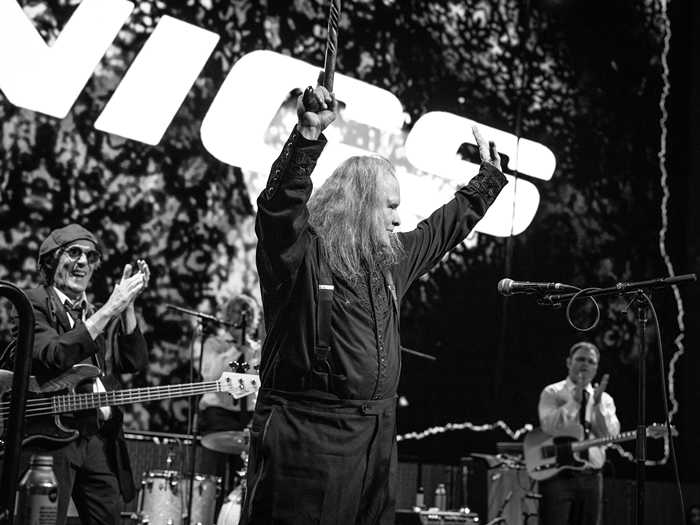
A film doomed by convention, Land is a competent but boring look at one woman's venture into Wyoming's wilderness that fails to go in any exciting narrative directions.
The "find yourself in nature" story has become a subgenre of its own, and Land plays into nearly all of its cliches. In this case, the character finding themselves is Edee and is played by Robin Wright in what is also her directorial debut. The last time audiences would have seen Wright was briefly in last year's misfire that was Wonder Woman 1984. Thankfully, there is something more interesting going on here, with Edee running from her past, though only barely. If this film were a meal, it would be the cans of beans Edee eats over and over.
The story's most compelling part is how it frankly and frequently portrays Edee as a selfish and self-centered character, though it only scratches the surface of this characterization.
When Edee first arrives at the remote cabin she will now live in, she asks the man who sold it to her to have someone take the car from the property, something he warns her is not a good idea. That's where the film plays with the notion that her isolation connects to a desire for self-destruction. She doesn't just put herself at risk; she impacts others and consistently demands much of them.
This is because Edee is woefully ill-prepared. She forgets toothpaste and has to use baking soda as a substitute. She mostly brings canned food and some peanut butter, seemingly without any plan to get more. The friendships she forms with others are mainly one-sided, meant to provide her life with new meaning without much care given to others' lives.
Characters occasionally confront Edee about her selfishness. When she forms a friendship with a quiet and caring mountain man, played by Demián Bichir, he pushes back, telling her that "only a person who has never been hungry would think starving is a way to die." But disappointingly, Edee and the film are transparent in their disinterest in forming any deeper connections with other people.
Perhaps the biggest problem with Land is its unwillingness to engage with the more profound questions it gestures at toward its beginning. An Indigenous woman, Alawa Crow, played by Sarah Dawn Pledge, shows up early on to help rescue a near-dead Edee and tries to help with her knowledge as a nurse. That makes it perplexing when she subsequently almost vanishes from the rest of the movie. Her role is in service of Edee's character and journey. She is there to provide medical advice, a shallow characterization that underserves the character.
To see Land sideline Indigenous characters so thoroughly is disappointing and embarrassing, especially in comparison to Wild Indian, which also screens at the fest. It feels as though the land that Land stands on is just a backdrop, not an actual place with people living their own vibrant and complex lives that are as deserving of their own stories.
You can watch Land via its second Sundance screening on February 1 and in theaters starting February 12.


















